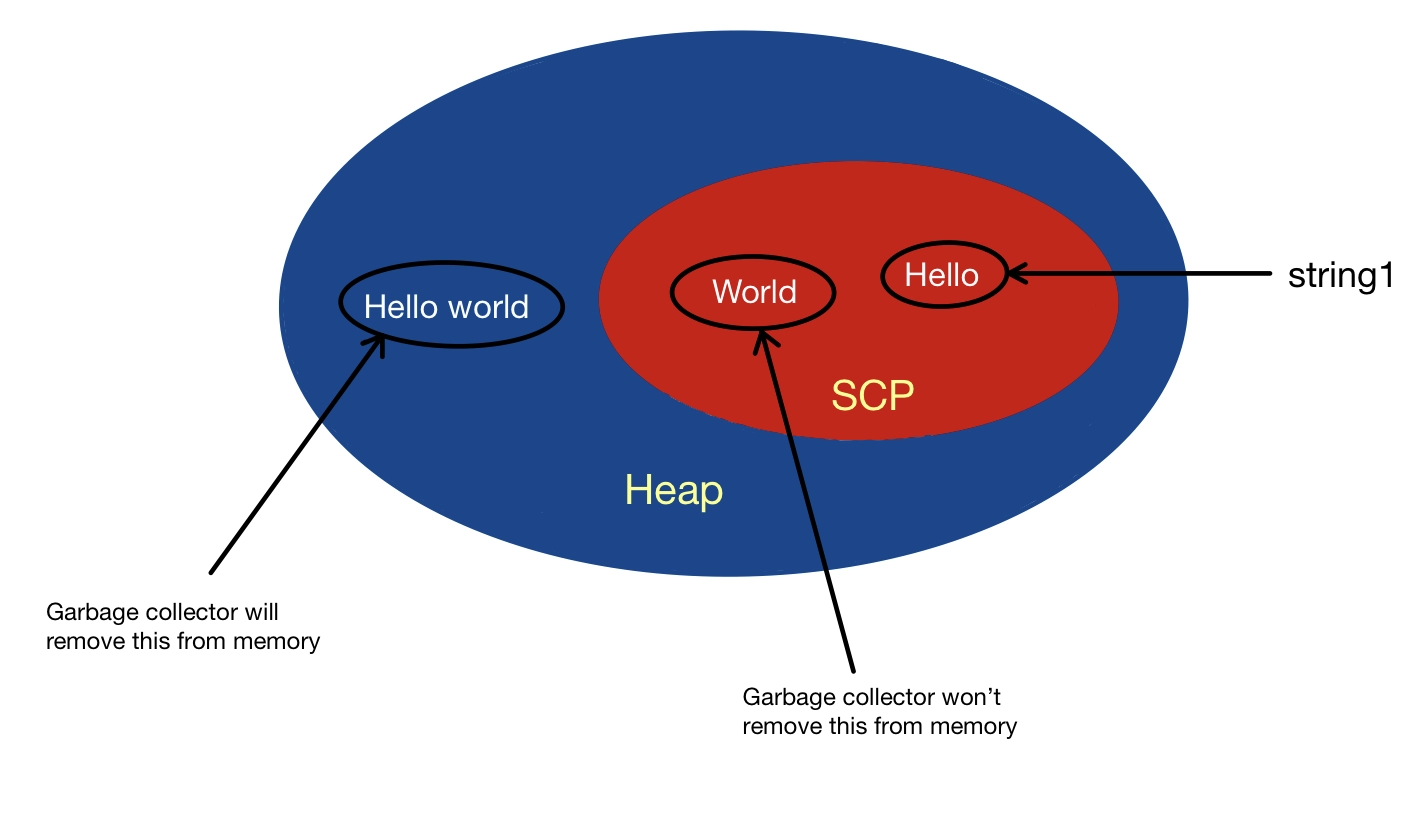Why Are Strings Immutable in Java? Insights into Memory Efficiency
Why Are Strings Immutable in Java? Insights into Memory Efficiency
Blog Article
What Is Unalterable Strings and How It Works
In the world of programs, understanding the principle of unalterable strings is paramount for developing durable and safe and secure applications. Unalterable strings refer to strings that can not be modified after they are produced, making sure data honesty and predictability within the code.
The Essentials of Unalterable Strings
Unalterable strings, as a fundamental principle in programming, are character sequences that can not be transformed as soon as they are developed. This indicates that once a string is assigned a worth, that value can not be modified. In languages like Python and Java, strings are unalterable objects, bring about different ramifications in terms of memory monitoring and data honesty.
One of the crucial advantages of unalterable strings is that they supply a sense of security in data control. Since the web content of an immutable string can not be customized, it makes sure that the initial information continues to be intact, minimizing the threat of unintended modifications throughout program implementation (Why are strings immutable in Java?). This property also streamlines debugging processes, as programmers can rely on that when a string is specified, its worth will not be accidentally modified
When a new string is produced based on an existing one, rather than customizing the initial string, the brand-new worth is saved independently. Overall, understanding the basics of immutable strings is vital for grasping programming ideas and enhancing code performance.
Benefits of Immutable Strings
Structure upon the security and effectiveness advantages of unalterable strings, their benefits prolong to improving code reliability and streamlining concurrent shows tasks. By being unalterable, strings can not be changed after production, which removes the danger of unexpected modifications in the information they save. This integral immutability makes certain that as soon as a string is produced, its value continues to be consistent throughout the program's implementation, lowering the possibilities of bugs created by unexpected changes.
In addition, unalterable strings add to code reliability by making it less complicated to reason concerning the state of a program. Considering that strings can not be changed, programmers can rely on that a string will constantly hold the same worth, simplifying debugging and maintenance initiatives. This predictability leads to extra steady and dependable codebases.

Application in Programming Languages
Within various shows languages, the consolidation of immutable strings is a basic aspect that influences how data is taken care of and adjusted within code structures. The application of unalterable strings varies throughout various programming languages, with each language supplying its very own systems to sustain this idea.

On the other hand, languages like C and C++ do not have built-in support for unalterable strings. Designers in these languages have to manually carry out immutability by implementing view it now rules within their code to stop direct alterations to string items.
Finest Practices for Dealing With Immutable Strings
When taking care of immutable strings in programming languages like Java and Python, adhering to ideal techniques ensures safe and efficient data manipulation. One of the essential finest practices is to utilize StringBuilder or StringBuffer instead of straight controling strings, particularly when dealing with comprehensive concatenation procedures. These courses supply mutable choices for string adjustment, aiding to avoid unneeded memory allotments and enhancing efficiency.
An additional ideal practice is to utilize string interpolation or format works offered by the language rather of manual concatenation. This not only enhances readability yet also aids in protecting against common mistakes such as unintentional string adjustments. In addition, when collaborating with delicate information such as passwords or API tricks, it is critical to avoid keeping them as plain text in immutable strings. Utilizing safe storage mechanisms like char selections or specialized libraries for managing delicate details aids minimize security risks more tips here associated with immutable strings.
Real-world Applications and Instances
Checking out practical executions of unalterable strings in various industries exposes their significant effect on information stability and system integrity. In the medical care industry, unalterable strings play a critical duty in making certain the safety and security and privacy of individual data. By avoiding unapproved adjustments to sensitive information such as clinical documents and prescriptions, unalterable strings help keep compliance with rigorous personal privacy regulations like HIPAA.
Banks also gain from the unalterable nature of strings to improve the security of customer information and transaction records. Immutable strings help prevent scams and unapproved alterations to monetary information, giving a robust protection against cyber risks and making certain the count on and self-confidence of customers.
Conclusion
Finally, unalterable strings are dealt with and stable series of characters that use benefits such as thread safety and improved efficiency in programming. They are executed in numerous programming sites languages to guarantee data integrity and security. Finest methods for collaborating with immutable strings include preventing straight adjustments and utilizing methods that return brand-new string items. Real-world applications of unalterable strings consist of data encryption, caching, and string adjustment tasks.
Immutable strings refer to strings that can not be changed after they are produced, making sure information honesty and predictability within the code. When a brand-new string is created based on an existing one, rather than modifying the original string, the brand-new value is kept individually.In languages like Java and Python, strings are unalterable by default, implying that once a string object is produced, its value can not be altered - Why are strings immutable in Java?. Finest practices for working with immutable strings consist of avoiding straight modifications and utilizing methods that return new string things. Real-world applications of unalterable strings consist of data security, caching, and string adjustment tasks
Report this page